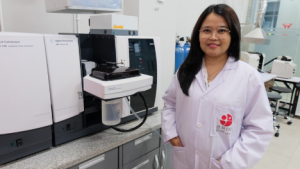Indonesia

Related Research:
Translational material science and engineering toward innovative advanced materials based on nanocellulose derived from agricultural waste, particularly generated from oil palm plantations. Nanocellulose offers a plethora of remarkable properties as potential building blocks for materials due to unprecedented mechanical properties, chemically tuneable surface functionality, printability, low density, low toxicity, high porosity, optical transparency, great adsorption capacity, biologically renewable and sustainability in addition to their abundance. The multifunctional characteristics of nanocellulose have driven our research into myriad applications and products including environmental remediation, manufacturing additives, and bio-composites, as well as insulation materials and bio-electronics.
Relation to Climate Resilience and Adaptation Theme:
Our research on nanocellulose in Indonesia has integrated circular economy models from raw material selection and processing technologies to applications. This approach aims to create sustainable, eco-friendly, and economically viable innovations while protecting the environment and preserving natural resources and biodiversity for future generations. The activities promote climate resilience and adaptation by reducing the massive amount of solid waste generated in Indonesia, the world’s largest palm oil producer. This effort results in innovative products and applications, such as cellulosic insulation material for buildings, which offer promising solutions for reducing energy demand and carbon emissions. The trial adaptation technology has also involved the local community in collaboration with PT Mandiri Palmera Agrindo, promoting co-product diversification in the palm oil industry and driving the local economy while demonstrating eco-friendly practices to reduce the carbon footprint associated with industrial activities.
Affiliated Organisation:
Badan Riset dan Inovasi Nasional – BRIN (National Research and Innovation Agency)
